ontinental is working to develop systems designed to act as electronic chauffeurs for drivers for automated driving. As the international legal framework currently stands, however, this scenario is a long way off. Continental has welcomed the discussion initiated by the G7 countries aimed at developing a standardized legal framework, but calls for international regulations. Experts at Conti also recommend the development of reliable radio networks for sharing data among the vehicles and infrastructure, as well as clear rules for ensuring unambiguous dialog between cars and drivers in challenging traffic situations.
“Further technological development depends on a modern legal framework,” said Kurt Lehmann, CTO at Continental, who warned against the application of outdated legal provisions. Current legal texts do not take into account the various issues surrounding the use of intelligent vehicles. “We want accidents to be a thing of the past, but this will remain purely a Utopian vision as long as the road traffic acts fail to consider the use of state-of-the-art technologies or excessively restrict the technological opportunities,” continued Lehmann.
March 6, 2017

